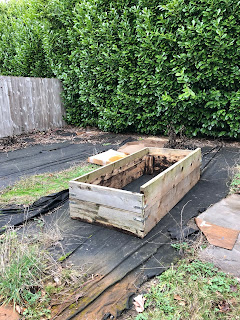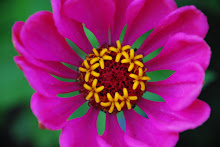Many of you read my what to plant in the march edible garden post earlier this month. As we are now 2 weeks into March I wanted to offer you an update on my weather predictation and favorability of planting conditions.
We have some sunshine and much warmer temperatures on the way. Over the next 7 days it is looking like daytime highs in the 60s and overnight lows varying from the upper 30's to upper 40's. Over the extended 2-week forecast I see no risk of frost (32 degrees). Remember in frost temperatures seeds won't germinate, potato tubers and onion bulbs will rot in wet soil, and newly planted vegetable starts will suffer.
Our average last frost date is around March 15. Though, we could still have frost as late as April 15. That being said I think these warmer day and night temperatures are now ideal to begin planting your spring garden. Keep in mind we are only planting cool season vegetables March, April, and into the first few weeks of May.
You are holding off on planting all warm season vegetables until mid-May. This means no basil, beans, tomatoes, squash, etc. yet!

Cool Season "Bulk Vegetables" to Plant NOW:
Asparagus-from crowns
Garlic-from cloves
Horseradish-from roots
Jerusalem Artichokes/Sunchokes-from tubers
Potatoes-from certified seed potato tubers
Onions-from bulbs or bunches
Shallots-from cloves
Here are cool season crops to plant in the garden NOW with seed vs transplant preference:
Arugula-seeds
Asian greens-seeds or starts
Collards-seeds or starts
Endive/Escarole-seeds or starts
Florence Fennel-seeds or starts
Kale-seeds or starts
Leeks-starts
Lettuce-seeds or starts
Mesclun Mix-seeds
Mustard Greens-seeds or starts
Peas-seeds or starts
Radicchio-seeds or starts
Radishes-seeds
Salad greens-seeds
Scallions-seeds or starts
Spinach-seeds or starts
Swiss Chard-seeds or starts
Keep in mind if you are planting seeds directly in the garden I'd recommend covering the seed bed with a frost blanket to raise air & soil temperatures to increase germination rate.
Given the warm temperatures forecast this week I'm giving the ok to plant these from starts NOW broccoli, brussels sprouts, cabbage, and cauliflower.
Hold off until April on planting seeds of beets, carrots, celeriac, kohlrabi, parsnips, and turnips. Make sure the soil has warmed up to at least 55 degrees or their seeds won't germinate!
In the herb garden plant NOW cool-loving annual herbs like chervil and cilantro from starts. Biennial parsley is super cold hardy and can be planted now. Start planting NOW hardier annual herbs like chamomile and dill.
All perennial herbs can be planted NOW like chives, lavender, oregano, rosemary, sage, and thyme from transplants.
NOW is the perfect time for planting small fruit and fruit trees in your garden. Last week Jay & I enjoyed a leisurely stroll in the sunshine around Portland Nursery. I was so excited to see so many types of fruit tress now available in espalier form, columnar, dwarf and mini sizes. Lots of fruit trees are now grafted with multiple varieties on one tree. I love this! All perfect for the small space urban garden.
One last reminder...now that I've given you the go-ahead for planting...make sure not only your garden is prepped with compost & fertilizer, but make sure your body is prepped. It has been a long cold sleepy winter. Make sure you stretch before and after gardening, take breaks, and don't overdo it. We can be so excited for spring gardening that we jump in and do it all. Our over exuberance can result in soreness, sprains, and strains. So ease into it my friends.
Happy gardening!
Jolie
The Gardening Goddess
Wellness Through Nature
jolieanndonohue.com














